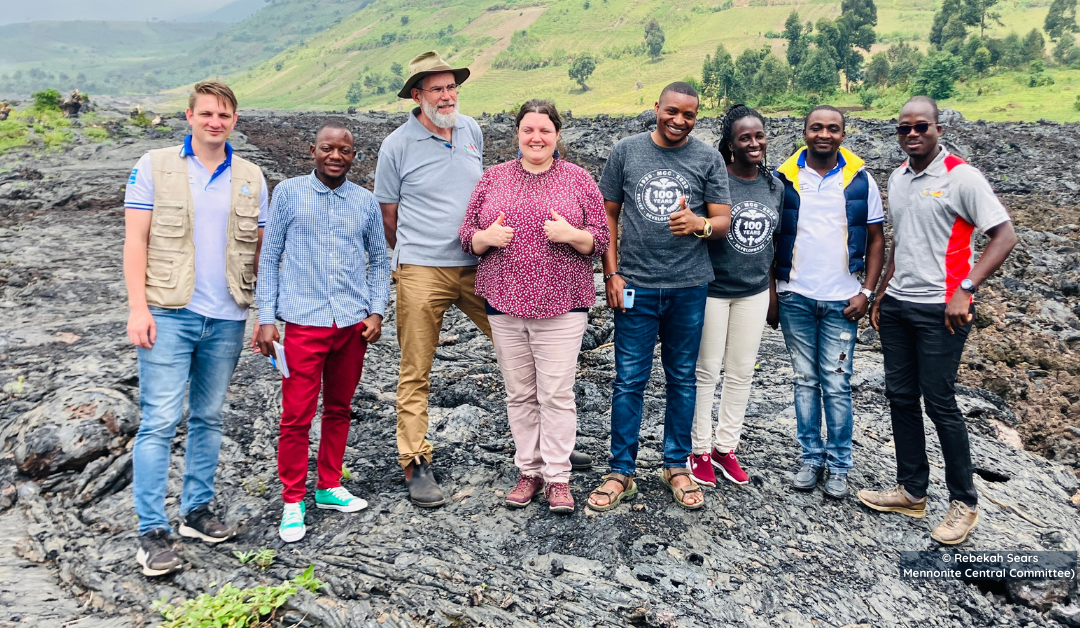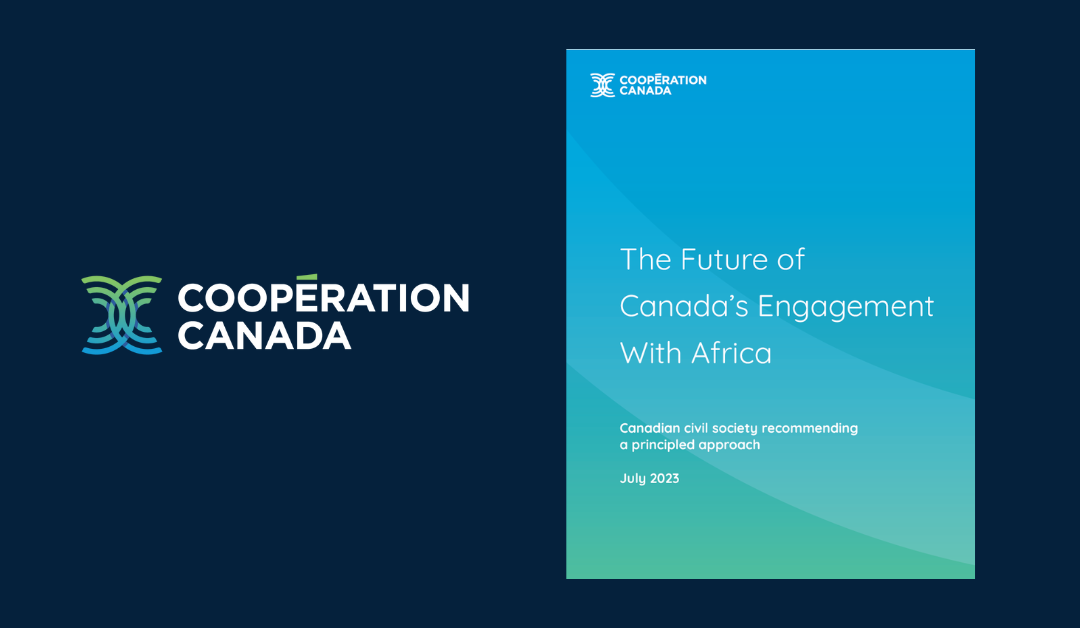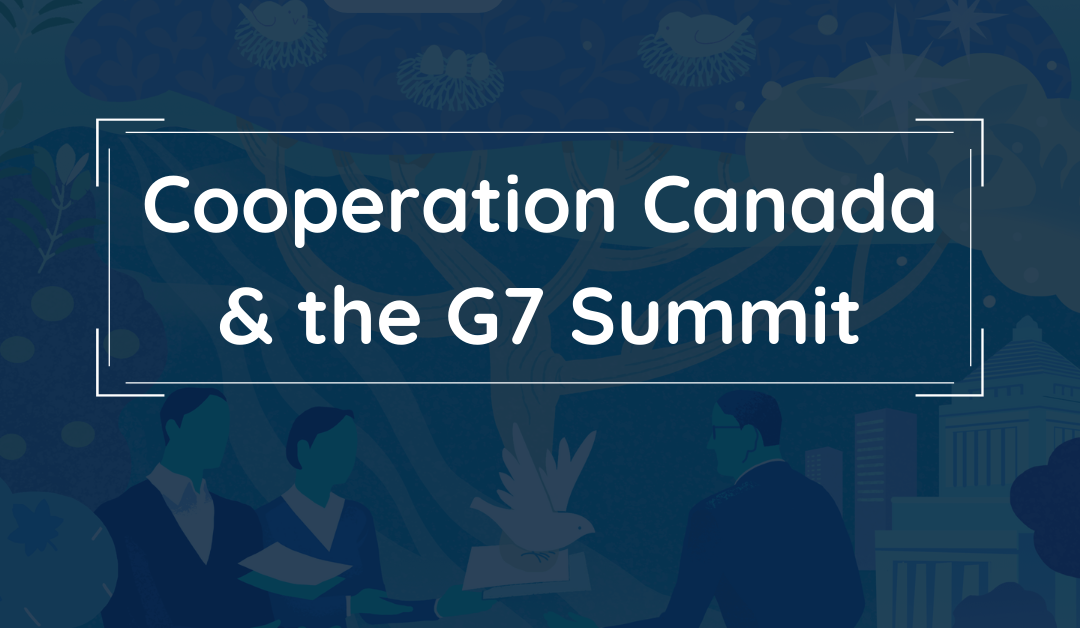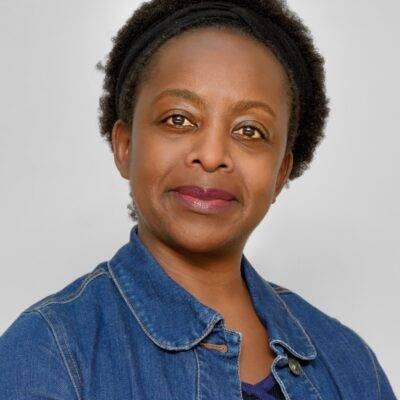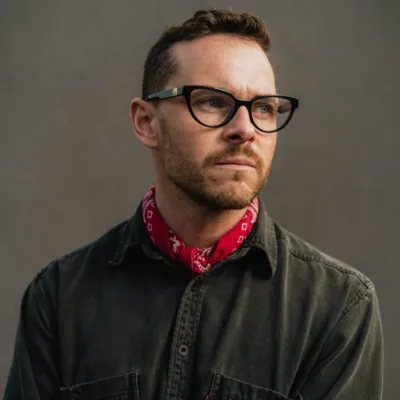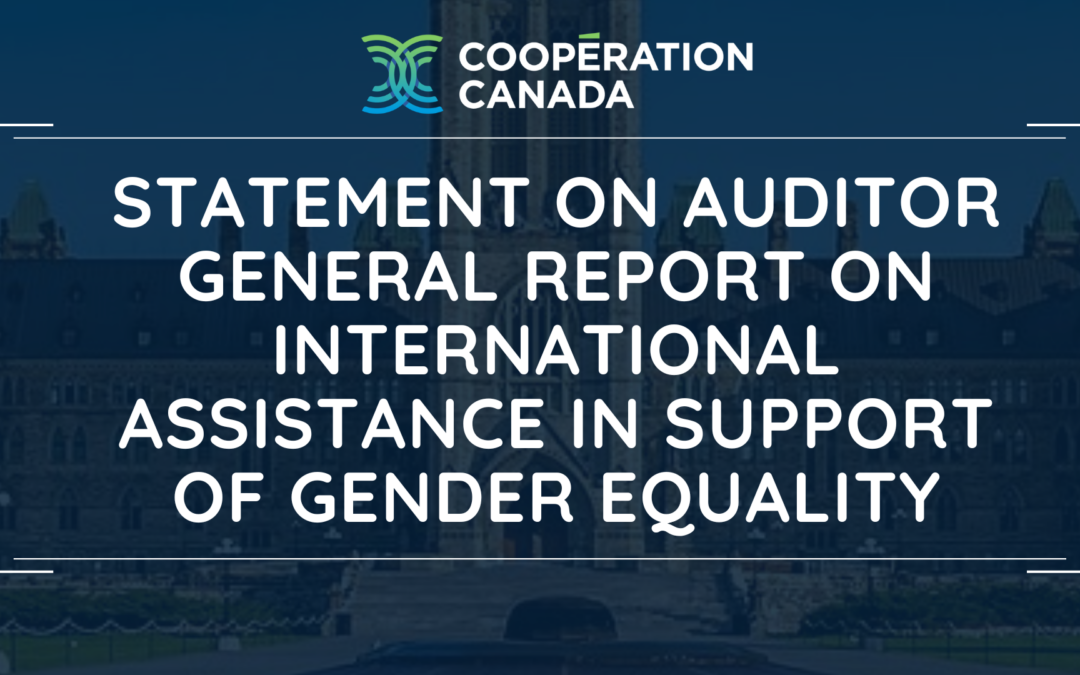The G7 is an informal grouping of advanced democracies that share values of freedom, democracy and human rights. The platform started in Paris in 1975 with six countries (France, Germany, Great Britain, Italy, Japan, and the United States of America). The G7 was formed in 1976 after the US requested demanded that Canada be brought in. G7 countries meet annually to coordinate global economic policy, global security, and address other transnational issues. This year, the G7 summit will be held from 19 to 21 May in Hiroshima, Japan.
Parallel to the governmental process, non-state actors mobilize to bring to the attention of G7 leaders the concerns of their respective constituents called engagement groups. In the lead-up to this year’s G7, Cooperation Canada is working with civil society actors and the Canadian government to ensure constructive dialogue with G7 countries.
The C7 Process
The Civil 7, or C7, is one of the seven official Engagement Groups represented in the G7 forum. The C7, coordinated by a civil society coalition of the country assuming the G7 Presidency, produces every year a set of policy recommendations for the Leaders’ Summit. This year, the C7 is led by Japan Civil Society Coalition, supported by an International Steering Committee that Cooperation Canada is part of. As part of the C7, there are six Working Groups: climate and environmental justice; economic justice and transformation; global health; humanitarian assistance and conflict; open and resilient societies; and nuclear disarmament.
Mobilized on April 13-14, 2023, for the C7 Summit in Tokyo, then on April 16-17 at the Hiroshima People’s Summit, C7 representatives released policy recommendations ahead of the G7 Hiroshima Summit. As Policy Lead for Cooperation Canada, I had the privilege of attending these meetings and participating in this process.
The C7 Communiqué
On Wednesday, 12 April, C7 representatives presented to the G7 Chair and Prime Minister of Japan, Fumio Kishida, the recommendations contained in the 2023 C7 Communiqué. This document was a collective effort of over 700 civil society representatives from 72 countries. The Communiqué reminds G7 leaders of the responsibility and opportunity to design and implement transformative policies for peace, prosperity, and transparency. Following a Preamble that calls for the Hiroshima Summit to “be ‘AAA’ rated – ‘Ambition, Action, Accountability’”, the Communiqué outlines recommendations from the six Working Groups.
The Nuclear Disarmament Working Group is the first of its kind, born under this year’s Presidency, given the context of nuclear risk exacerbated by the war in Ukraine. The Working Group recommends that G7 leaders acknowledge the harm caused by nuclear weapons, commit to reducing nuclear risk, and reallocate resources spent on nuclear arsenal to disarmament.
Noting that the G7 economies are overwhelmingly responsible for the climate crisis, the Climate and Environmental Justice Working Group calls on G7 leaders to leverage their power to disentangle economies from fossil fuels, address climate change impacts including by providing adequate finance to the Loss and Damage Fund, protect and restore ecosystems, as well as promote sustainable food systems and climate-friendly financial institutions.
The Working Group on Economic Justice and Transformation calls on the G7 to steer the system-wide transformation needed to respond to multiple crises, including by reforming the international debt and tax architecture, re-inventing the World Trade Organization, enforcing mandatory human rights and environmental due diligence legislation, and promoting an inclusive and trustworthy digital economy.
The recommendations of the Global Health Working Group underscore the protection and advancement of health equity and global solidarity to guarantee the rights of everyone to the highest attainable standard of physical and mental health. This requires G7 leaders to invest in Universal Health Coverage, strengthen the global health infrastructure by building on lessons from the Covid-19 pandemic, and prioritize health and environment co-beneficial policies.
Recognizing that the humanitarian system is under immense strain, the Humanitarian Assistance and Conflict Working Group asks G7 leaders to reimagine a humanitarian system that truly anticipates needs, prioritizes those most at risk, and preserves a space independent from political agendas.
The Open and Resilient Societies Working Group advocates for more democratic and just societies, and for the protection of civil society action. The WG asks the G7 to uphold the human rights principles in words and actions at home and abroad, committing to standing against human rights violations, discrimination against minorities, corruption, and limitations on civic space.
The C7 Summit
The Communiqué was publicly handed over to the G7 Sherpa, State Minister for Foreign Affairs of Japan, on the first day of the C7 Summit. The Summit gathered participants in person and online in plenary sessions, including a scene-setting panel with Japan’s G7 sous-Sherpa moderated by Cooperation Canada, and several breakout sessions led by the various Working Groups.
Collaboration was an important aspect of the Summit. Japan’s C7 leadership made a point to ensure the presence in Tokyo of civil society actors from the Global South to demonstrate the global nature of the C7 process beyond the G7 countries. The C7 coalition also included a panel discussion with representatives of other G7 Engagement Groups, including Labour7, that issued a joint statement with C7 after the Summit, Pride 7, Science7, Think7, Women7, a group that became official in 2018 when Canada last held the G7 Presidency, and Youth7.
The People’s Summit
C7 representatives joined citizens of Hiroshima at the Peoples’ Summit organized on April 16-17, 2023, to emphasize the significance of the location and its message of peace ahead of the G7 meeting. The city of Hiroshima, branded as an international city of peace, literally rose from the ashes following the devastation caused when the first wartime atomic bomb was dropped by the United States in 1945. In the current context of global instability and growing nuclear risk, it is not surprising that Japan chose to host the May G7 Summit in Hiroshima.
Throughout the People’s Summit, the presence and testimonies of Hibakusha (atomic bomb survivors) were vivid reminders of the inhumanity of nuclear weapons and the urgent need to commit to their abolition worldwide. Recognizing that some voices would like Japan to become a “normal” country that invests more in defence and armament, People’s Summit participants called for Japan to be a “special” country, one that remembers the horrors of war and nuclear weapons and determines not to let it happen again.
Canadian Organizations Engaging Ahead of the G7 Summit and Beyond
Cooperation Canada and some of its members have been engaging with the government to understand Canada’s priorities for this year’s G7 Summit. Representatives of the Humanitarian Policy and Advocacy Group (HPAG) met on April 27th with Gallit Dobner, Executive Director at Global Affairs Canada and G7/G20 sous-sherpa, to understand Canada’s priorities for the G7 Summit, especially regarding the hunger crisis and famine prevention. HPAG representatives appreciate that the April 2023 Foreign Ministers’ Communiqué reaffirmed the G7 commitment to the famine prevention compact, yet were hoping for a refreshed compact reflecting current challenges. They also highlighted the opportunities to contribute to future conversations on nutrition and food security in the G20 process this year and under Italy’s presidency in 2024.
On May 2nd, Cooperation Canada joined a meeting with David Morrison, Deputy Minister of Foreign Affairs and G7 Sherpa along with other engagement groups, both official such as Business7, Science7, Think7, Women7, and Youth7, and unofficial like Pride7, University7, and Urban7. The Sherpa opened the meeting reflecting on the drastic changes and complex crises that beset the world, following decades of post-war prosperity for G7 countries. This ongoing polycrisis context, obviously dominated by the Ukraine war, has led to unprecedented levels of engagement among G7 countries since 2022: Heads of State met six times, while Foreign Ministers met on 12 occasions. Cooperation Canada took the opportunity of this meeting to share the key recommendations from the C7 Communiqué.
As Cooperation Canada engages in this G7 process, we are also looking to 2025, when Canada will hold the G7 Presidency. We look forward to engaging with Cooperation Canada members, and other partners in Canada around the world, in the lead up to 2025. We believe that positive synergies and constructive dialogue between civil society and government are essential to overcome current intersecting crises, and are critical in our collective efforts to work towards a fairer, safer, and more sustainable world for all.
Andy Ouedraogo
Research and Program Officer
Carelle Mang-Benza
Policy Lead
Darron Seller-Peritz
Policy Analyst and Program Officer
Nicolas Parent
Policy Analyst
